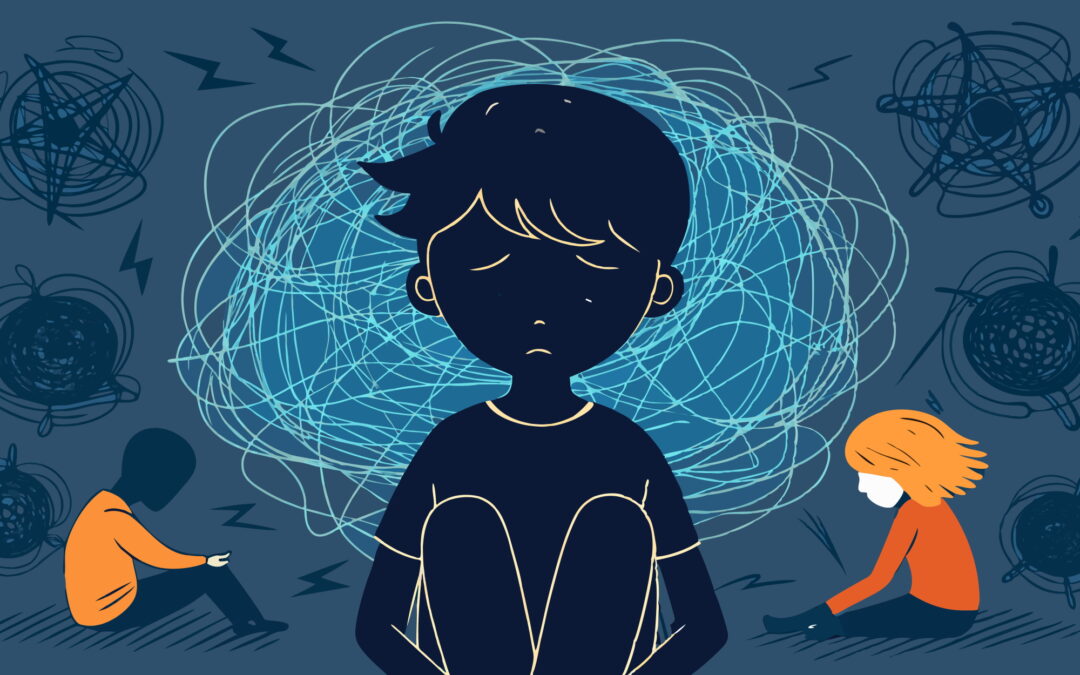
by Iliyah Maddox | Jun 18, 2025 | social and behavioural sciences
In early 2020, the world changed almost overnight. As COVID-19 swept across the world, homes were repurposed as schools, playgrounds and classrooms were abandoned, and family routines changed utterly or vanished. People were forced to adapt to remote working, many lost their jobs, and a significant proportion of us experienced anxiety about the virus that had turned the world upside down. However, amid this pandemonium, one group of people was especially vulnerable: children. We often think of childhood as a carefree time, protected from responsibilities, worries and burdens. However, the pandemic shattered this illusion. For many children, it caused confusion, isolation, and fear. Recognizing the need to understand this impact, Dr. Carlos Lastra and his team of researchers at Saint Peter’s University Hospital in New Jersey, undertook an essential study: assessing how the pandemic affected anxiety levels in children and adolescents.

by Iliyah Maddox | Jun 17, 2025 | social and behavioural sciences
Are we primarily motivated by self-interest, or can activities that advance the progress of others provide similar or even greater levels of motivation? Logically, it would seem that people are most motivated to achieve specific goals when they are doing things that benefit themselves. Examples include studying for an exam, doing regular physical exercise, or working toward a career milestone; all activities that have tangible and readily apparent benefits for the individual pursuing them. Consequently, many of us would tend to believe that personal progress is our biggest driver. However, a recent study by Prof. Olya Bryksina from the University of Winnipeg reveals a surprising twist in how motivation works, especially when we’re part of a group. In her innovative research, published in Motivation Science in 2025, Professor Bryksina explores a question many of us encounter daily but rarely think deeply about: What makes people put in effort when working toward a shared goal as part of a group? Her findings suggest something profound, that helping others in a group can be more motivating than helping ourselves.

by Iliyah Maddox | Jun 3, 2025 | health and medicine, social and behavioural sciences
Research from Troy Norris at the WellBalance Institute for Positive Wellbeing reveals how a novel approach to measuring wellbeing can lead to more effective personalized interventions. The Wellbeing Balance and Lived Experiences (or WellBalance) Model and Assessment extends traditional wellbeing measures by evaluating both positive experiences and the feelings they generate, enabling tailored approaches to enhance individual flourishing based on specific life circumstances.

by Iliyah Maddox | May 7, 2025 | social and behavioural sciences
Research from Professor Rumi Kato Price at the Washington University School of Medicine and her colleagues, Professors Sheldon Zhang and Annah Bender, reveals how research-driven, standardized indicator approaches can better identify human trafficking victims than traditional legal and prosecutorial frameworks. Their work in Cape Town, South Africa demonstrates that trafficking victimization exists on a spectrum rather than as a binary classification, with implications for improving identification and support for victims worldwide.

by Iliyah Maddox | Apr 23, 2025 | arts and humanities, social and behavioural sciences
A recent paper from Professor William Gardner at Texas Tech University and Professor Kelly Davis McCauley at West Texas A&M University challenges a critique that characterized authentic leadership theory as “wrong” and “perilous.” Their analysis demonstrates how misrepresentations of the theory can undermine valuable leadership approaches, while highlighting the empirical support and practical benefits of leaders striving for authenticity in organizational settings.

by Iliyah Maddox | Apr 14, 2025 | social and behavioural sciences
Research from Dr Christopher W. B. Stephens and Sue Miller at the Susanna Wesley Foundation, Southlands College, Roehampton, reveals how university chaplains can effectively evaluate and demonstrate their impact within higher education institutions. Their work shows how chaplains can meet institutional demands for accountability while maintaining the unique spiritual and pastoral nature of their work, offering insights into evaluating the distinctive aspects of chaplaincy services.






